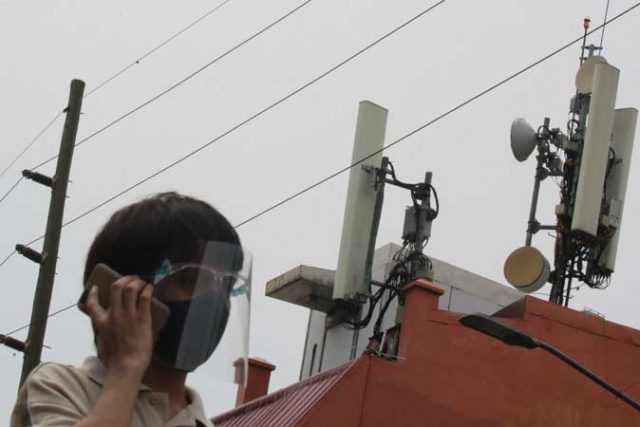Regulatory safeguards in PSA bill needed — PCC

Jenina P. Ibañez, Reporter
A COMPETITION commissioner is urging lawmakers to include regulatory safeguards against national security issues that some senators fear could arise from a priority bill that would open up the telecommunications and transport sectors to more foreign ownership.
Such regulations should be issued instead of outright banning bigger foreign participation in providing critical infrastructure, Philippine Competition Commissioner Johannes Benjamin R. Bernabe said in a phone interview on Monday.
“The push for liberalization can be better addressed through targeted regulation, which would ensure that the dangers we seek to guard against will be addressed through the appropriate regulatory framework,” he said.
The Philippine Competition Commission (PCC) supports amendments to the Public Service Act (PSA), including removing the foreign equity cap on the telecommunications and transportation industries.
The industries, which are considered public utilities, limit foreign ownership of the public utility company to 40%. The remaining 60% must be owned by Filipino citizens.
Certified as urgent by President Rodrigo R. Duterte, the Senate is currently deliberating its version of the bill seeking to amend the PSA to allow 100% foreign ownership of telco and transport firms. The House version has been approved on third reading.
Some senators have raised concerns on lifting the foreign ownership restriction, warning that it could threaten national security or favor a single country. Senator Risa N. Hontiveros-Baraquel said that the amendments could allow for China’s ownership of crucial infrastructure in the country.
But PCC’s Mr. Bernabe said that such concerns can be addressed through existing and potential safeguards, such as the concern that state-owned China Telecoms could take on 100% of DITO Telecommunity Corp.
“The question that I raise is: isn’t it that there’s also provision which says that a foreign-owned or controlled corporation through a state-owned enterprise of its own cannot be allowed to invest in a public service which is deemed to be part of the critical infrastructure of the country — for instance telecoms?”
“Secondly, the national security council, through the Office of the President which heads it, can vet any such investment and say that it’s a threat to national security and therefore not allow it,” he said.
Concerns over foreign competition hurting local tricycle and jeepney operators in the transport sector can also be addressed through rules requiring use of the local language or a minimum number of years of residence in the country, Mr. Bernabe said.
“If the legislators are so concerned about having appropriate regulations put in place, they can already put those regulations in the statute. For instance, if they want telecoms and common carriers not to be acquired by state-owned enterprises, then put that in the statute,” he said.
“If they want state-owned enterprise definition to include those which… are receiving substantial subsidies from foreign governments, include that in the statute.”
Mr. Bernabe said that inclusion of certain regulations could address concerns that regulators are “too familiar” with or financially influenced by the businesses they regulate.
“If you want owners or operators of common carriers to be residents of the Philippines for at least 10 years… put it in the statute if they don’t trust the regulators enough.” he said.
“And then offer a catch-all provision which would say that regulators in their relevant sectors are mandated to come up with regulatory requirements, whether they be qualification or licensing requirements which would address the need to safeguard the welfare of Filipino citizens.”
Mr. Bernabe is hoping his personal recommendations will be included in the position paper PCC plans to submit to the Senate.
“I think the dangers and concerns that (senators) flagged can be better addressed through regulation rather than resorting to limits on equity and liberalization,” he said.
